The DEI Inversion
How my town library's Social Justice Book Club helped me figure out smarter ways to fight freelance busting.
I happened to be flipping through the TV news channels last week when conservative activist Robby Starbuck was on CNBC. He was talking about DEI programs being used as a way to get far-left ideologies into corporate workplaces.
As a professional freelancer since 2003, I can’t even remember the last time I had to sit through corporate-imposed programs, which I recall being bizarrely annoying circles of hell.
However, as an author and voracious reader, I am regularly involved with my town library, which is why it caught my ear when the CNBC host said this about DEI programs: “It’s interesting that you say they were born of some good intentions. Was there a time, post-George Floyd, Robby, where you understood where these were coming from and maybe even supported some of them?”
Starbuck replied:
“No, because I’m smart. I understood what was happening from the very beginning. However, I understand why some people got sucked into it.
“You know, if you have what I refer to as toxic empathy—so, you have a certain semblance of empathy that’s really healthy, right? But then you get to a point where you start to overlook facts, or you don’t dig deep into something and investigate it fully, because on the topside you just want to feel like you’re a good person, and you’ve got a group of people messaging to you that you’re a good person if you do this, this and this, and so you just don’t want to investigate and actually confirm that’s the case, that’s toxic empathy.
“And that’s kind of what overwhelmed a lot of the country. They just didn’t want to be called racist.”
In the first part of his answer, Starbuck was talking about me.
I have what he described as healthy empathy. After seeing the George Floyd murder, I agreed to become a founding member of the Social Justice Book Club that my town library was creating. I was just as horrified as everyone else about what we had all seen happen in broad daylight. And, I like to read and be exposed to new ideas.
Sure, I was totally up for learning more about social-justice topics given the national conversation at the time.

It was just that simple at the start, a good intention—but then I also did what Starbuck talked about in the second half of his answer. I dug deep and investigated.
I actually read the books from cover to cover, unlike friends who learned all the talking points from social media. I made the time, month after month, to sit in the library with lots of traditional liberals and some hardcore progressives, listening to them parrot those talking points in ways that didn’t always seem right to me.
Starting with the first meeting, I realized I was a contrarian voice. Polite, but not just going along for the ride.
As time went on, I heard myself pushing back with increasing frequency.
Sometimes, after many of us had become friends and I felt comfortable making full-throated objections, we’d outright argue.
Eventually, I realized the language being used to try and convince me that I was a racist simply because I’m white was eerily similar to the language the freelance-busting brigade was using to try and convince me that I was an exploited victim, simply because I’m an independent contractor.
It was an important lesson learned in how to identify messaging that repeats in different contexts—and it helped me figure out much smarter ways to fight freelance busting that I still use today.
The Language Loop
As with so many book clubs that were being formed at that time, our club’s first book selection was White Fragility by Robin DiAngelo. We went on to read well more than a dozen titles about racial issues, including How to Be an Antiracist by Ibram X. Kendi.
So many Americans were reading these types of books that the figures were astounding, with sales going through the roof.
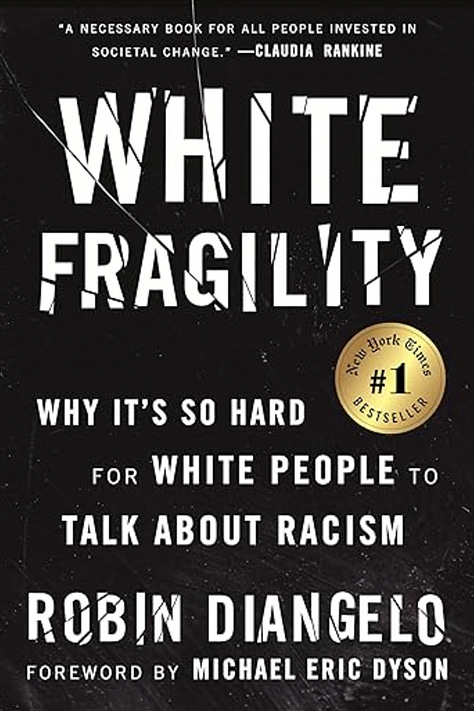
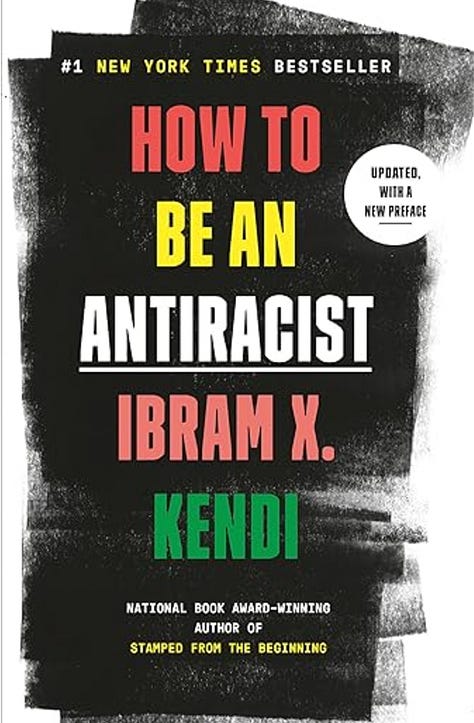
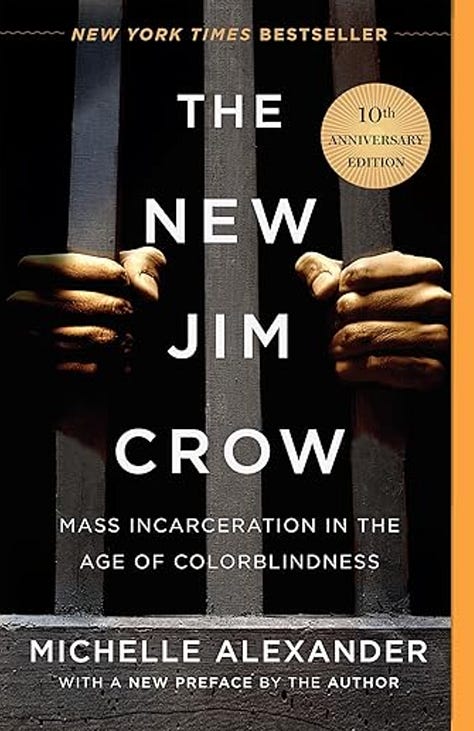
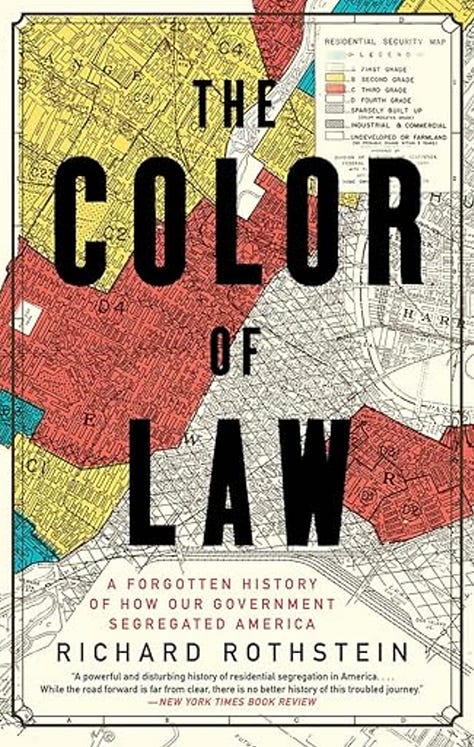
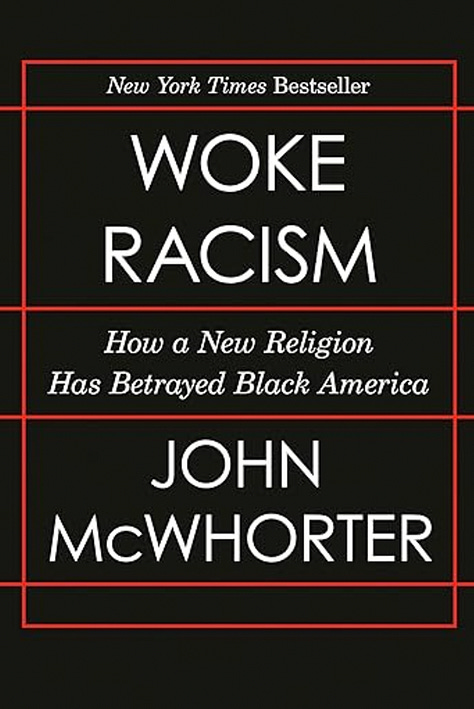
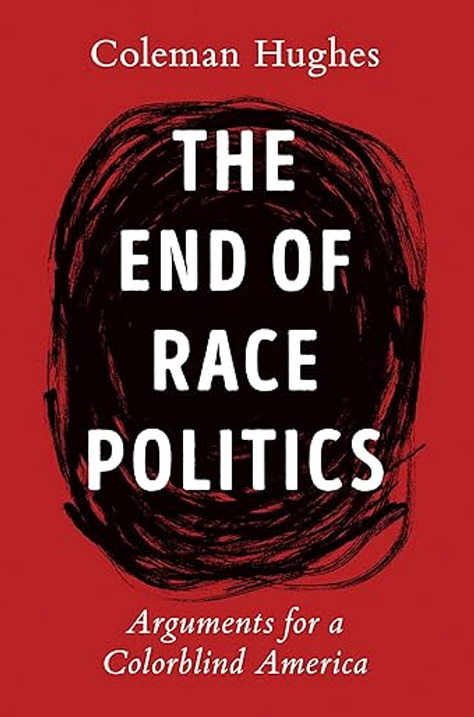
The message that authors like DiAngelo and Kendi conveyed permeated the nation’s cultural conversation—and it was a message that differed from other books about racial issues. In our library’s club, we also read titles such as The New Jim Crow by Michelle Alexander, The Color of Law by Richard Rothstein, and One Person, No Vote by Carol Anderson, all of which documented and delineated actionable problems that could be solved in police departments, banks and voting booths.
These books told concerned readers what we could do together, as a society of well-intentioned people, no matter our skin color.
What made books like White Fragility different was their message that entire ethnicities were either the oppressors or the oppressed. If you were white, you were either a racist or you were too much of a racist to admit your own racism. Those were your only two options.
These types of books pitted us against one another. They allowed no space for common ground whatsoever.
I vividly remember that first book club meeting, when I found it odd to hear myself saying out loud, “You can’t just walk around calling everyone who has white skin a white supremacist. That’s crazy.”
Some folks in the club—all white people—disagreed with me. One also admonished me, saying it’s inappropriate these days to use the word “crazy.”
This kind of thing went on for some time in the book club, until the most ardent purveyors of the oppressor-victim narrative ultimately quit. I guess they felt like it wasn’t a safe space where everyone nodded along and agreed. (I imagine they’re over on Bluesky right about now, feeling their feelings, or something like that.)
I ended up staying until the club disbanded, reading more and learning in great detail what was behind all the media headlines at the time. I was thrilled when some of America’s most talented Black writers gave us all precise words to explain why this narrative of oppressors and victims is so dangerously wrong.
The End of Race Politics by Coleman Hughes is a good book from this genre, but my favorite is Woke Racism by John McWhorter. His book-jacket copy is what finally put exacting language to everything I was thinking about the book club and the independent-contractor policy debate, all at once:
Americans of goodwill on both the left and the right are secretly asking themselves the same question: How has the conversation on race in America come to this? We hear that being born white automatically confers privilege even if you’re poor, while being black marks you as a victim even if you don’t feel like one.
Think about the language the progressive left was simultaneously using to define—more accurately, to try and redefine—independent contractors.
How had the conversation about self-employment in America come to this? Being a traditional, unionized employee automatically confers privilege even if you’re miserable, while being an independent contractor marks you as a victim even if you don’t feel like one.
That’s what the freelance-brigade was trying to make everyone believe—and what they’re still trying to make everyone believe—no matter how many studies the government releases showing that 80% of independent contractors overwhelmingly prefer the way we work, and do not want traditional jobs.
Why do so many people go along with the narrative that we’re all oppressed victims who need to be saved by being reclassified as unionizable employees? Why do so many Democrats, in particular, go along with it, as Pew Research found?
For the same reason Starbuck said so many people got caught up in DEI messaging.
“They just didn’t want to be called racist.”
In the case of “gig workers,” they just don’t want to be called privileged.
Get Over It. Speak Truth.
Back in September, I did this Q&A with Luke Conway, a psychologist who recently published the book Liberal Bullies. That Q&A is one of the best-read pieces on my Substack, with views still climbing to this day.
Conway writes about how authoritarianism is not just limited to right-wing politics. It’s also quite evident in today’s left wing, he says, with some of the most authoritarian liberals having a total blind spot about how awful their behavior actually is.
While his book doesn’t talk about the independent contractor policy debate, I did ask him about it in the context of his research:
Democratic Party lawmakers say they’re giving us the “freedom to join a union” as they push policies that would restrict or eliminate our right to be self-employed. When I say that their policymaking feels authoritarian, am I interpreting your work correctly?
Absolutely. The removal of individual freedom for the “greater good” is straight from the classic authoritarian playbook. In fact, you are fighting on the edge of the authoritarianism front line here. Your fight is everyone’s fight. We can of course debate the collective good argument in some domains. But if we allow the government to take away our right to run our own business, what right can’t they take away?
A sobering analysis, indeed.
One of the tips Conway offers in his book for trying to fight back is to stop caring about what people say you are, and instead start caring about what you actually are.
That sounded correct to me. And once I stopped caring about whatever names the freelance-busting brigade might call me, it became easier to figure out how to expose a core problem with anti-independent contractor policymaking: the total failure to acknowledge who most of us actually are. To accept that we actually feel empowered, and that we don’t want or need saving.
For instance, I recently applied Conway’s various tips to testimony I gave before a task force in Minnesota. Now, I’ve testified in plenty of places about this issue, including before Congress, and I’ve usually done well, but I’ve never elicited a reaction like the one I got that day in Minnesota.
The representative of the SEIU basically blew a gasket on camera after I spoke. He was adamant that while union busting is a real and significant problem, freelance busting is most certainly not.
That was quite a thing to witness: a guy whose union relentlessly pushes policies to hurt legitimate freelancers, sitting on a commission discussing yet more policies that would hurt legitimate freelancers, saying that the destruction of legitimate freelancers’ livelihoods from this kind of policymaking is not even a real thing.
Starbuck’s term toxic empathy is just as good as any, I think, to describe what happened there. The Minnesota SEIU representative had no interest in researching or confirming actual facts. He believed he was a good person despite all the facts—and having his friends cheer him on is what mattered to him most.
The term toxic empathy is similarly a good fit for everyday people who nod along in agreement while reading opinion pieces in places like The New York Times under headlines that claim “More People Are Being Classified as Gig Workers. That’s Bad for Everyone.”
They believe they’re good human beings because, among their friends, this is the “right” thing to believe. They’re entirely overlooking the fact that most independent contractors don’t want to be employees, and that for a lot of us, earning income this ways actually improves our health and work-life balance, and limits sexism, racism and ageism.
Believing us, instead of the dogma being spewed about us, would make them feel like bad people.
Racist.
Privileged.
Whatever.
If somebody tries to convince you that being a traditional, unionized employee automatically confers privilege, while being an independent contractor makes you a victim, understand why some perfectly well-intentioned people get sucked into this way of thinking.
And then, do everything in your power to bring them back to reality.
Before their toxic empathy ends up wiping out the right of self-employment for us all.


